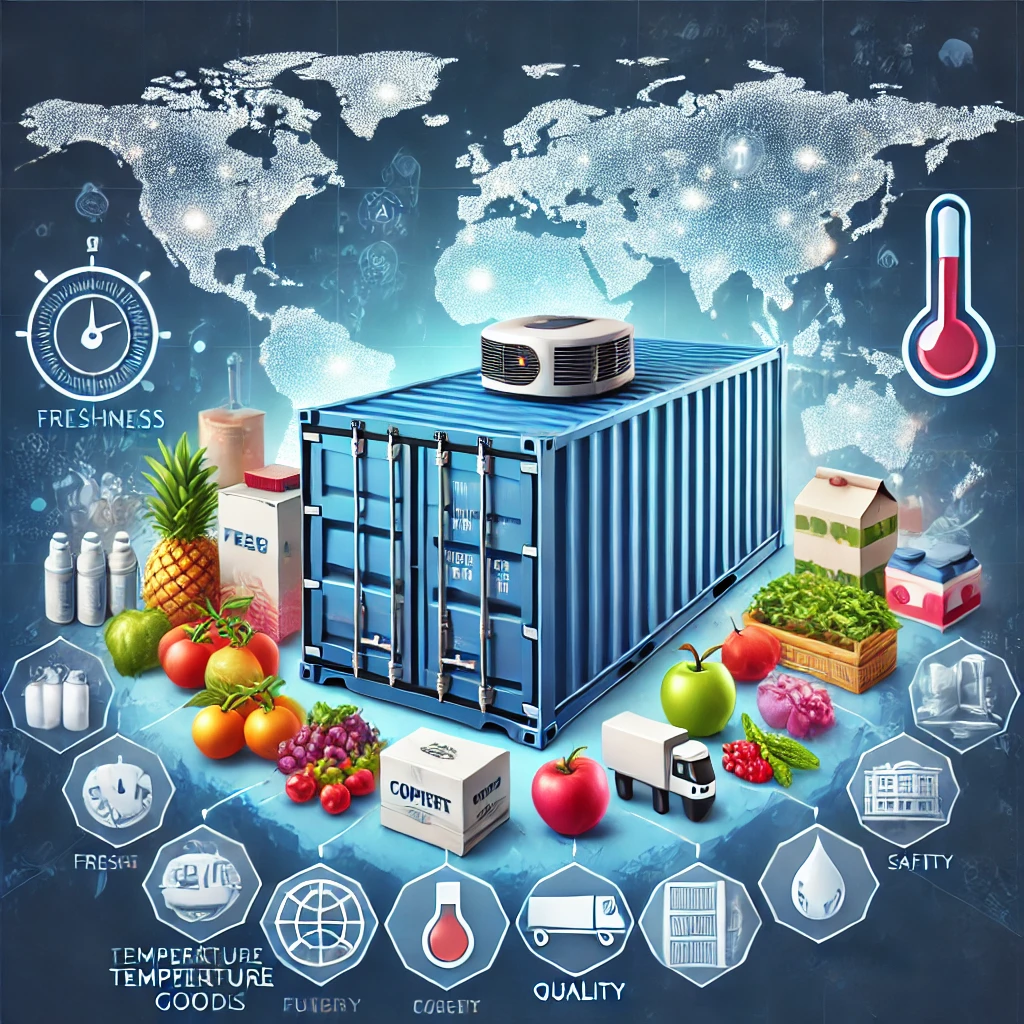Sustainability in Cold Chain Logistics: The Future of Reefer Containers
As businesses across the globe increasingly focus on sustainability, the logistics sector is no exception. Cold chain logistics, responsible for transporting temperature-sensitive goods like food, pharmaceuticals, and chemicals, is a critical part of this conversation. Within cold chain logistics, reefer containers—specialized refrigerated shipping containers—are key players in maintaining product quality and safety. However, traditional reefer containers consume significant energy, contributing to greenhouse gas emissions. As the world shifts towards more sustainable practices, innovations in reefer container technology and cold chain logistics are leading the charge towards a greener future.
This blog explores the intersection of sustainability and cold chain logistics, focusing on how the future of reefer containers is being reshaped to meet environmental goals.
1. The Importance of Sustainability in Cold Chain Logistics
The global cold chain is essential for preserving the integrity of perishable goods, ensuring that items like food, medicine, and vaccines are delivered safely and in optimal condition. However, it’s also a major consumer of energy. Reefer containers are powered by diesel generators or electricity to maintain precise temperature control, which requires continuous energy consumption during shipping and storage.
Given the environmental challenges we face—rising global temperatures, pollution, and resource depletion—there is a growing demand to reduce the carbon footprint of cold chain logistics. Sustainability in this area is no longer a luxury; it’s a necessity for companies looking to meet regulatory standards, reduce operational costs, and cater to consumers increasingly concerned about environmental impact.
2. Energy Efficiency: The Key to Sustainable Reefer Containers
One of the primary areas where sustainability in reefer containers is being achieved is through improvements in energy efficiency. Traditional reefer containers have been notorious for their high energy consumption, especially when powered by diesel generators. However, the industry is witnessing significant advancements in more energy-efficient technologies.
Eco-friendly Refrigeration Units
Modern reefer containers are now equipped with variable speed compressors and advanced cooling units that adjust power usage based on the container’s internal temperature needs. These systems reduce the amount of energy consumed by only cooling the container when necessary, instead of running continuously at full power.
Moreover, solar-powered reefers are being tested and implemented in some regions. Solar panels installed on top of the container provide a sustainable energy source, reducing reliance on traditional fossil fuels. Though still in its early stages, solar power is showing promise as a future energy solution for cold chain logistics.
Advanced Insulation
High-quality insulation plays a critical role in reducing the energy demands of reefer containers. Vacuum-insulated panels (VIPs) and phase-change materials (PCMs) are innovative solutions that significantly improve insulation efficiency, allowing reefer containers to retain internal temperatures for longer periods without requiring constant refrigeration. By minimizing the need for cooling, these technologies help reduce the overall energy consumption and carbon emissions of cold chain logistics.
3. Sustainable Fuel Alternatives
The reliance on diesel fuel to power reefer containers has been a significant contributor to the logistics industry’s carbon emissions. However, companies are increasingly adopting alternative fuel sources to reduce the environmental impact of cold chain logistics.
One promising development is the use of liquefied natural gas (LNG) and biofuels as cleaner alternatives to diesel. These fuels produce fewer emissions and pollutants, helping companies reduce their carbon footprint while still maintaining the power needed to run refrigeration units. Additionally, electric-powered reefers are becoming more prevalent, especially for shorter hauls, where containers can be plugged into the grid at regular intervals.
4. Smart Reefer Containers and IoT Technology
The integration of Internet of Things (IoT) technology into reefer containers is transforming how cold chain logistics are managed, with positive sustainability impacts. Smart reefer containers equipped with IoT sensors and connected devices enable real-time monitoring of internal temperature, humidity, and energy consumption.
With IoT, logistics operators can optimize energy usage by adjusting temperature settings based on real-time data. For example, if a shipment is running colder than necessary, the cooling system can automatically adjust to save energy without compromising the integrity of the cargo. These smart systems also detect inefficiencies or malfunctions early, preventing unnecessary energy waste.
The predictive maintenance capabilities provided by IoT technology ensure that reefer containers are operating at peak efficiency. By reducing unexpected breakdowns and minimizing energy loss, smart reefers contribute to the overall sustainability of the cold chain.
5. Circular Economy: Reusing and Recycling Reefer Containers
Another key trend shaping the future of reefer containers is the move towards a circular economy. In a circular economy, resources are reused and recycled to reduce waste and environmental impact.
In cold chain logistics, older reefer containers are being repurposed or refurbished to extend their lifespan instead of being discarded. Additionally, the materials used in reefer container manufacturing are being selected for their recyclability. Steel, aluminum, and high-quality insulation materials are commonly used, which can be recycled at the end of a container’s life cycle.
Companies are also adopting modular container designs that allow for parts to be easily replaced or upgraded, reducing the need to produce new containers and minimizing waste. This shift towards circularity aligns with broader sustainability goals and ensures that fewer resources are consumed over time.
Conclusion
As cold chain logistics evolve, the push for sustainability is reshaping the future of reefer containers. From energy-efficient cooling systems to alternative fuel sources, IoT technology, and a focus on recycling, the industry is making significant strides towards reducing its environmental impact.
For companies looking to stay competitive while meeting the demands of environmentally conscious consumers, embracing sustainable reefer container solutions is no longer optional—it’s essential. The future of cold chain logistics lies in adopting innovative, eco-friendly practices that balance the need for temperature control with the responsibility of reducing the industry’s carbon footprint.
 عربي
عربي عربي
عربي